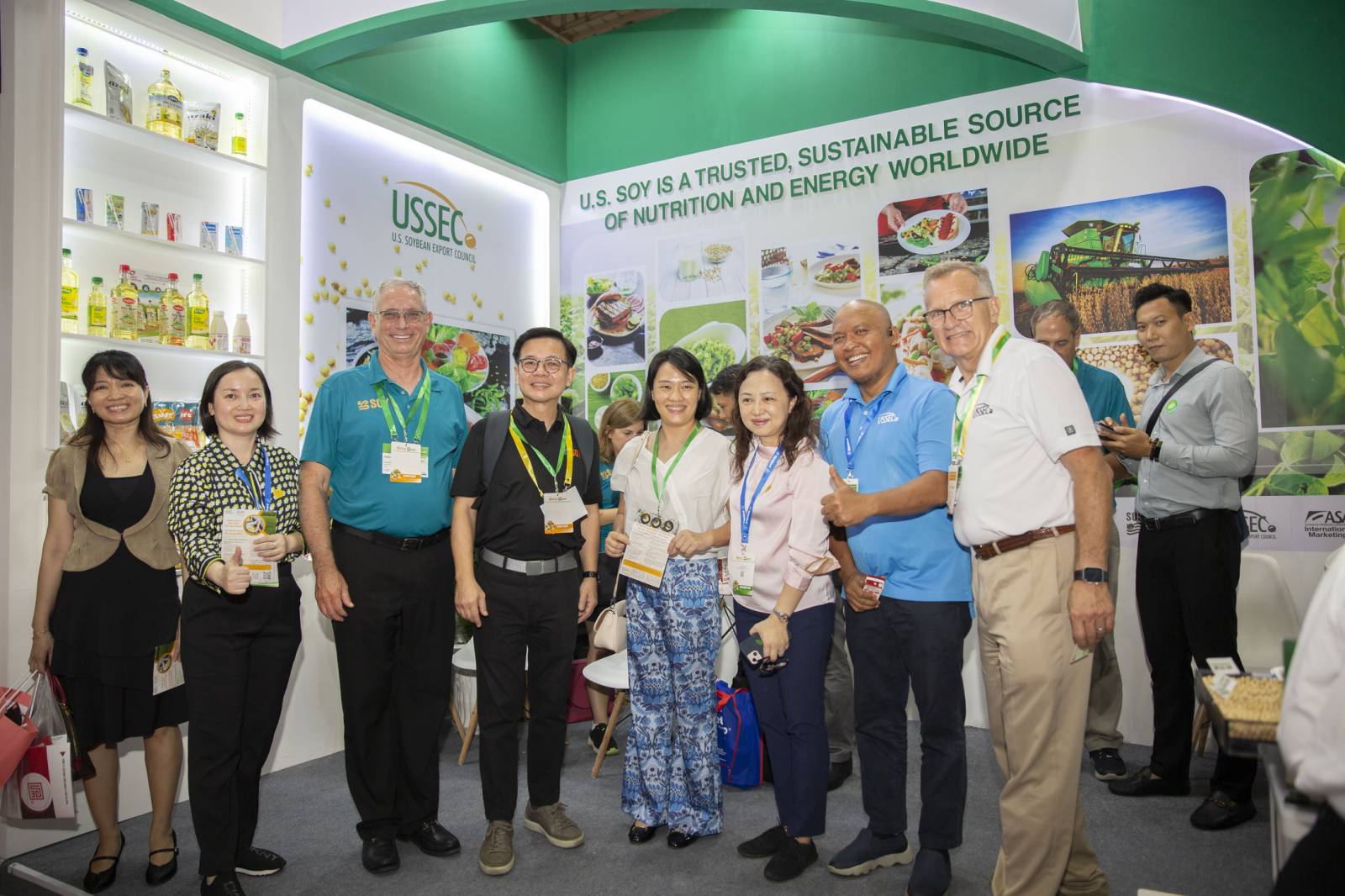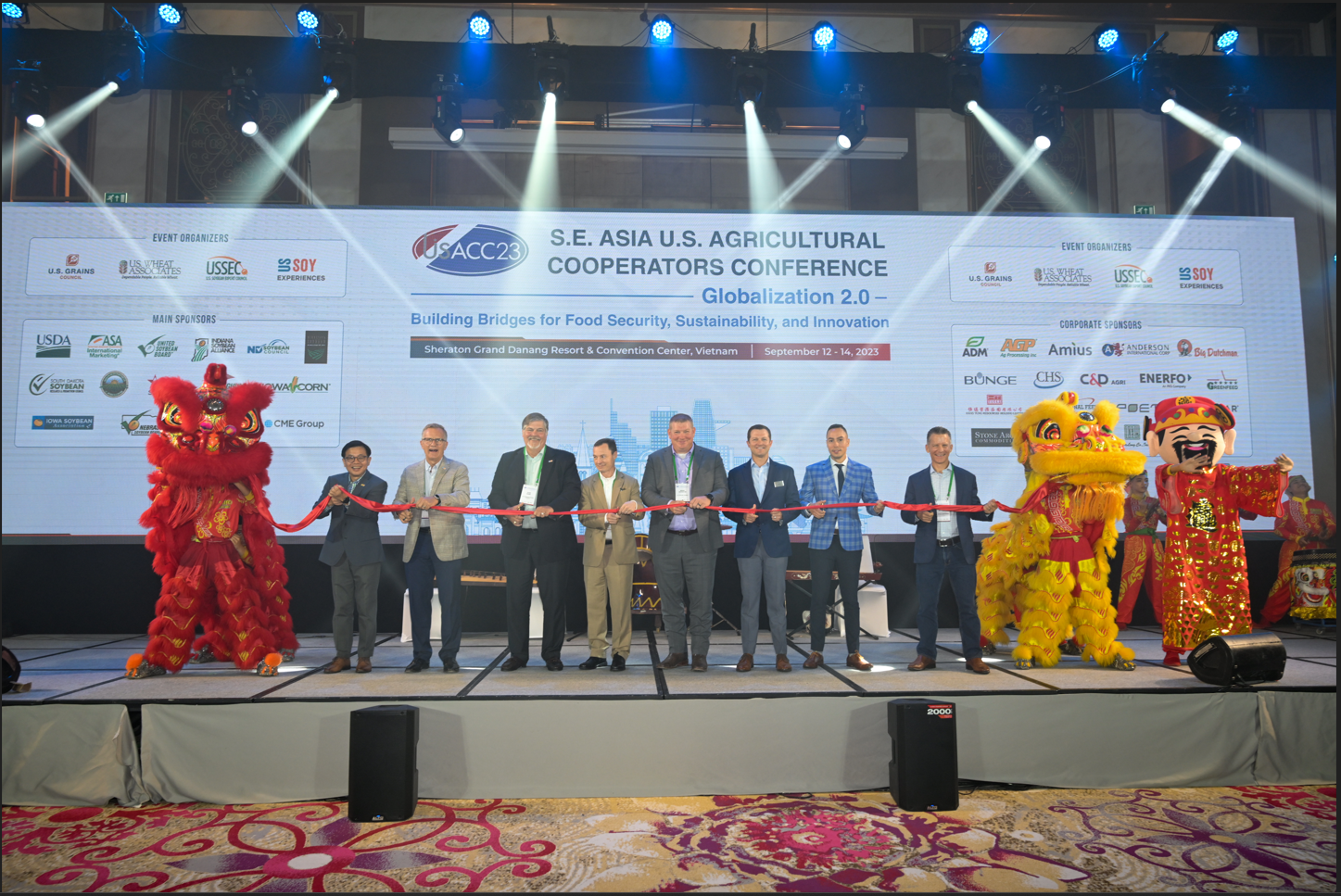Timothy Loh, Regional Director for Southeast Asia and Oceania of the US Soybean Export Council (USSEC), said t...
Timothy Loh, Regional Director for Southeast Asia and Oceania of the US Soybean Export Council (USSEC), said the comprehensive strategic partnership between the US and Vietnam will foster technology transfer and innovation in agriculture, making agriculture a major contributor to the national and global economy.
In a recent interview with Dan Viet, Timothy Loh, Director of Southeast Asia and Oceania at the US Soybean Export Council (USSEC), said that there are many new opportunities in agricultural cooperation between Vietnam and the USUnited after the two countries elevated their relationship to a comprehensive strategic partnership in September 2003.

Timothy Loh, Director of Southeast Asia and Oceania at the US Soybean Export Council (USSEC)
What do you think the recent visit of President Biden to Vietnam and the elevation of U.S.-Vietnam relations into a comprehensive strategic partnership mean for our relations?
The elevation of the U.S.-Vietnam relationship into a comprehensive strategic partnership demonstrates the strong commitment of both countries to deepen cooperation to achieve the shared goals of growth, prosperity and sustainable development. This strategic partnership contributes to a significant positive impact on agricultural trade, particularly in the soybean and feed sectors.
Vietnam has a dynamic workforce, a growing middle class and a rising average income that are driving the growing demand for high-quality protein sources, with soy products being the first choice. In addition, the shift to plant-based diets continues to drive demand for soy products.
As the United States is one of Vietnam’s main suppliers of agricultural products, including soybeans, this partnership should foster even stronger trade ties. The United States is currently Vietnam’s second largest soybean importer in Southeast Asia, with Vietnam ranking 13th in the world for soybean consumption
The joint statement said the US is committed to increasing its support for Vietnam in the area of smart and sustainable agriculture. How can the US and Vietnam expand their cooperation in this area? Are there new areas where both sides can strengthen their cooperation?
Trade between the United States and Vietnam reached $130 billion in 2022, including $10 billion from agriculture, showing significant growth potential. In fact, this trade growth offers opportunities for knowledge exchange, technology transfer and agricultural innovation, which can help create a strong and sustainable industry.
By linking economic growth to responsible and sustainable practices, Vietnam can position its agricultural sector as a strong and resilient contributor to the country’s economy and global community, attracting foreign investment and contributing to the country’s long-term growth and prosperity.
 USSEC booth at the 27th International Exhibition on Food and Beverage Processing Technologies, Food and Beverage Packaging in Ho Chi Minh City HCMC (VIETFOOD & BEVERAGE – PROPACK 2023). Timothy Loh fourth from left. Photo: Provided.
USSEC booth at the 27th International Exhibition on Food and Beverage Processing Technologies, Food and Beverage Packaging in Ho Chi Minh City HCMC (VIETFOOD & BEVERAGE – PROPACK 2023). Timothy Loh fourth from left. Photo: Provided.
In the near future, with the support of the US Department of Agriculture, USSEC plans to expand its cooperation with key organizations in Vietnam such as the Vietnamese Association of Seafood Exporters and Processors (VASEP) and the Vietnamese Business Council for Sustainable Development (VBCSD). These partnerships are essential to promote sustainable practices and support the development of the soybean value chain in Vietnam.
* Agricultural exports are an important economic sector in Vietnam. In your opinion, what should Vietnam do to increase the value of its exports? Increased US agricultural imports into Vietnam could also increase pressure on Vietnamese farmers. How can both parties solve this problem?
Free trade and globalization have played and will continue to play an important role in global economic development. These principles can also have a significant impact on the Vietnamese agricultural sector. Accepting free trade agreements and participating in the global economy can foster innovation and sustainability in the country’s agriculture.
In addition, as I said earlier, open trade policies will pave the way for increased opportunities for knowledge sharing and technology transfer, further fostering innovation in agriculture in Vietnam.
 United States-Asia-Southeast Asia Agricultural Cooperation Conference, held in Da Nang, Vietnam. At the opening of the conference, key representatives from the US Soybean Export Council, the US Grains Council, the US Wheat Association, the Foreign Agricultural Service (FAS) of the US Department of Agriculture-The United States, along with leaders of U.S. soybean producers, cut the ribbon. Photo credit: NVCC.
United States-Asia-Southeast Asia Agricultural Cooperation Conference, held in Da Nang, Vietnam. At the opening of the conference, key representatives from the US Soybean Export Council, the US Grains Council, the US Wheat Association, the Foreign Agricultural Service (FAS) of the US Department of Agriculture-The United States, along with leaders of U.S. soybean producers, cut the ribbon. Photo credit: NVCC.
* What kind of partnership does USSEC have with Vietnam? How has the USSEC contributed to the country’s food security and sustainability goals?
The US soybean industry has played an important role in Vietnam’s agricultural development over the past 26 years. This partnership with USSEC includes the sharing of business and technical knowledge as well as expertise to support the development of Vietnam’s food, feed and livestock industries.
The goal of this partnership is to differentiate American soybeans based on the superior value, quality, consistency and sustainable practices of American soybean producers. Therefore, American soy is an ideal choice both as a food ingredient and as an ingredient for animal feed.
USSEC supports Vietnam’s food security initiatives through a programme that actively promotes sustainable development in agricultural and food businesses. USSEC helps disseminate the latest agricultural trends and practices to stakeholders, thus contributing to the resilience and sustainability of the Vietnamese food system, as demonstrated by events such as the Agricultural Cooperatives Conference in Da Nang this year
By aligning economic growth with responsible and sustainable practices, Vietnam can make its agricultural sector a resilient and influential contributor to both its domestic economy and the global community. On the contrary, it can attract foreign investment and contribute significantly to the nation’s long-term growth and prosperity. (Timothy Loh).
Via Bao Dan Viet